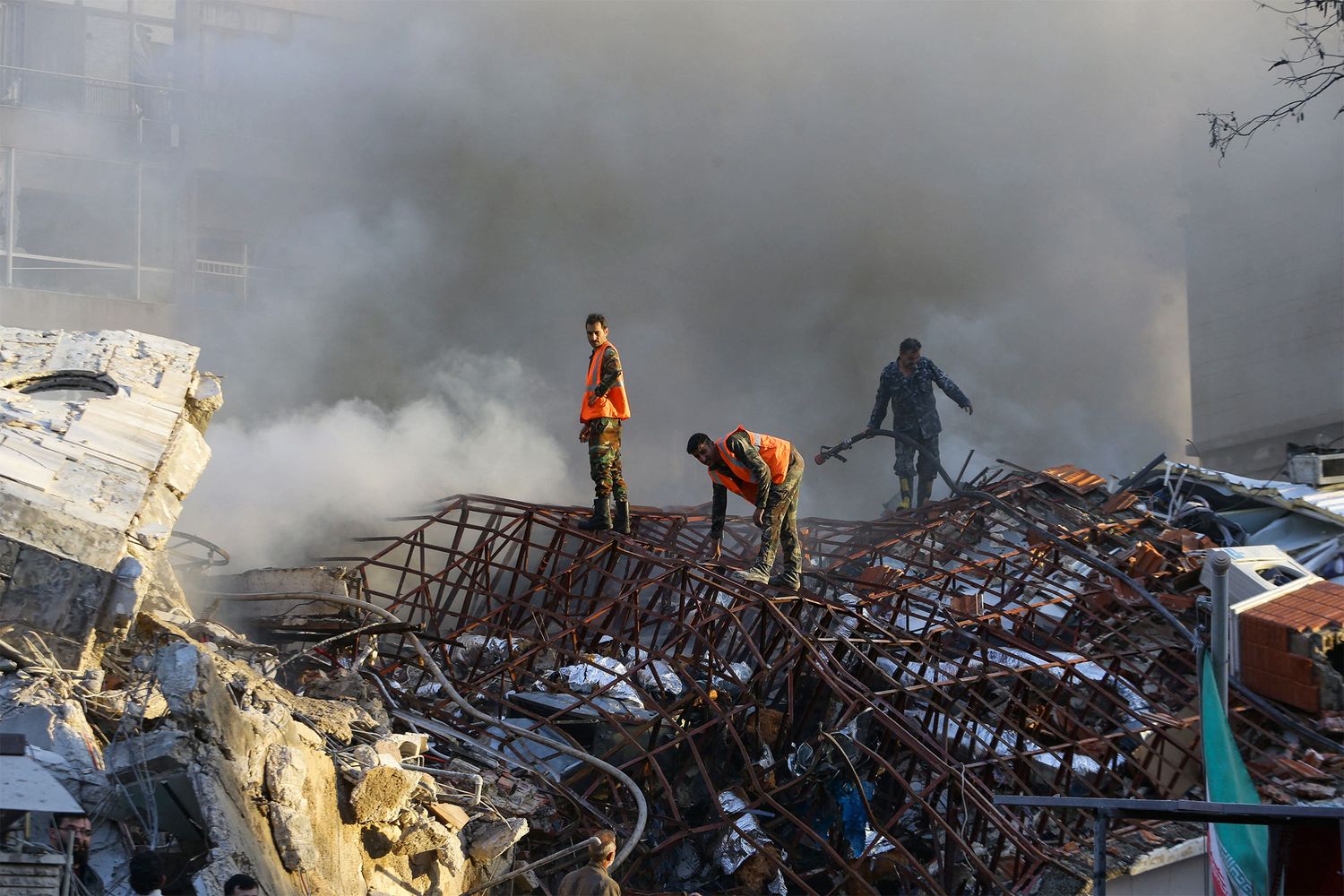Israel-Gaza War
Israel on High Alert as Iran Threatens Imminent Attack
Israel is bracing for a potential attack from Iran, which could occur within the next 48 hours. This development follows a series of threats from Tehran, promising retaliation for last week's airstrike on an Iranian diplomatic complex in Damascus, which resulted in the deaths of seven members of the Islamic Revolutionary Guard Corps (IRGC), including two high-ranking commanders.
The Wall Street Journal reported that the attack plans are under serious consideration by Iran's Supreme Leader Ayatollah Ali Khamenei, who is assessing the political risks involved. This information was disclosed by an adviser to Khamenei, highlighting the heightened tensions in the region.
In response to the looming threat, the US Embassy in Israel has issued a security alert, advising its employees and their families to avoid traveling outside central areas such as Tel Aviv, Jerusalem, and Be'er Sheva. The embassy has also permitted US government personnel to transit between these areas for personal travel.
Adding to the gravity of the situation, Gen. Michael Erik Kurilla, commander of US Central Command, visited Israel to discuss the potential threats. Concurrently, US Defense Secretary Lloyd Austin engaged in talks with his Israeli counterpart, Yoav Gallant, reaffirming the United States' unwavering support for Israel's defense.
Israeli Prime Minister Benjamin Netanyahu has issued a stern warning in response to the threats, stating, "Whoever harms us, we will harm them. We are prepared to meet all of the security needs of the State of Israel, both defensively and offensively." Netanyahu's remarks came during a speech at an airbase in southern Israel, underscoring the nation's readiness to counter any acts of aggression.
The recent developments are part of a broader context of ongoing hostilities between Israel and Iran, which have seen both nations engaging in a shadow war across the region. Israel has been preparing for various scenarios, including potential strikes on Iranian nuclear sites, as reported by Elaph News. This preparation includes conducting air force drills aimed at targeting critical Iranian infrastructure.
Iran's potential strategies for retaliation include direct attacks or using regional proxies such as Hezbollah and Hamas, which have historically acted on Tehran's behest against Israeli interests. The complexity of the situation is further compounded by Iran's limited ability to respond effectively without escalating the conflict into a full-scale war, which could have severe repercussions for both sides.
International reactions have been cautious, with global leaders calling for restraint to prevent a further escalation that could destabilize the already volatile Middle East. The German government, through Foreign Minister Annalena Baerbock, has emphasized the importance of avoiding further regional escalation. Similarly, other nations have expressed concerns about the potential for a broader conflict that could draw in multiple regional players and have unpredictable consequences.
As the situation develops, Israel remains on high alert, with its military forces prepared to respond to any act of aggression. The international community continues to watch closely, hoping that diplomatic efforts will avert a direct confrontation that could lead to significant loss of life and stability in the region.
In summary, the next few days are critical as Israel and its allies monitor Iran's actions closely. The hope remains that through diplomatic channels and international pressure, a new conflict in the Middle East can be avoided. However, Israel stands ready to defend itself should Iran choose to proceed with its threatened retaliation.

